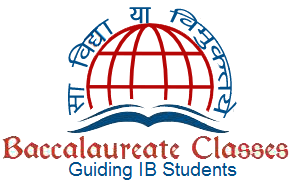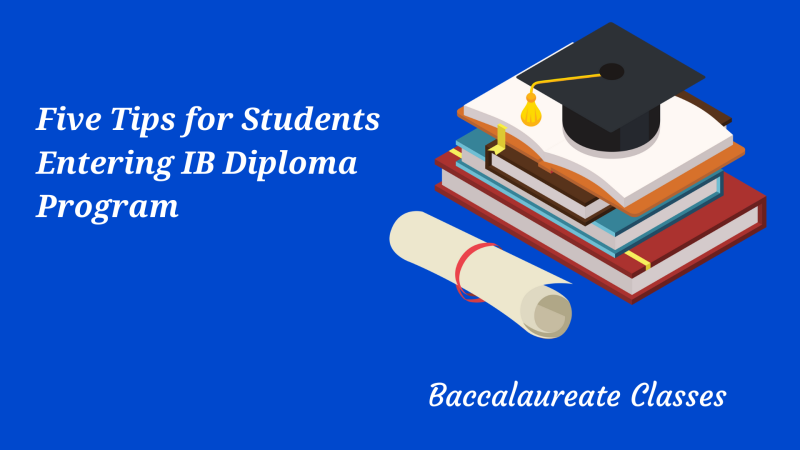OUR BLOG
Five Tips for Students Entering IB Diploma Program
The flexibility of the International Baccalaureate curriculum can be misleading. Most students choose their subject combination for the programme without thinking about the far-reaching consequences. For starters, children who are enrolled in the two-year programme must take three subjects at Higher Level (HL) and three at Standard Level (SL), follow a theory of knowledge (TOK) course, complete an extended essay (EE), and participate in Creativity, Activity and Service (CAS). The classes taken at HL entail 250 hours of studying, whereas those taken at SL entail a total of 150 hours. You will be assessed based on your performance in the six subjects, which are graded on a scale of 1-7, with a 4 considered passing.
To get your IB Diploma, you require 12 points in HL subjects and at least 9 points in SL subjects. Those are tough standards to meet. Moreover, the IB Diploma rate differs drastically among educational institutions worldwide. Our expert team of experienced IB Online Tutors at Baccalaureate Classes has assembled this guide to help new entrants with choosing their subject combinations and preparing for their IB examinations.
Weigh Your Interests
Fortunately, the IB curriculum offers an array of subjects. You have the freedom to study foreign languages like French and Spanish or immerse yourself in Maths or Physics in your IB online tuition. Your school years are meant for finding your interests in a low-stakes environment. Thus, consider subjects that you enjoy and courses that are relatively new and you wish to explore further with the help of your IB tutor. If you’re planning to pursue Medicine, you should take Higher Level Chemistry with Higher Level Biology or Physics. If you aspire to study Engineering at the university level, the minimum requirements are Physics and Math at Higher Level. In case you want to do a design course, you can pursue Higher Level Visual Arts.
It all boils down to what your long-term academic goals and plans are. If you aren’t sure about what you want to study in college yet, then choose a balanced coursework that reflects your strengths and abilities.
Develop A Study Strategy
Any IB tutor will tell you that the one skill you can’t do without is the organisation. Being organised not only helps you meet deadlines, but it also puts things into perspective. Allocate time for each subject while planning your study schedule but bear in mind that some courses might require more practice than the rest. Our IB Maths tutor recommends practising math sums daily and taking feedback into your stride to see which are the areas that you need to work on. Our IB Physics tutor suggests you do a review of all the topics and focus only on the ones which you find yourself weak in. Make sure you know which subjects will require the most amount of time in your schedule. Don’t change your strategy too frequently and stick to it to see some tangible changes.
Moreover, take enough breaks while studying so that you don’t end up burning yourself out. Set a time limit for your break and do something in the interim that will energise you. If you have an IB online tuition after your school lessons, re-energise yourself during the break by going for a brief walk etc.
Utilise IB Question Banks
Before your exam, you most probably go through the frustrating task of compiling questions from different places. Well, not anymore. Doing recapitulatory questions at the end of the chapter has been proven to help students understand the extent of their readiness. This is where question banks come in handy. They are useful for getting an in-depth analysis of the kind of questions asked during exams, their difficulty level etc. Our IB online tutors share ample question banks with each student to help them prepare for their exams. Having all your questions at one place will also help you search for them quickly and with ease. With all this information at your disposal, you can self-assess yourself that will eventually lead to consistent improvement in your test performance.
Websites like IB Documents also host one of the largest collections of IB past papers. As soon as IB posts papers, they all are added to the site. It even contains specimen papers for upcoming examinations.
Prepare From Established Publications
Our IB Math tutor and IB Physics tutor can confidently say that their study material covers everything you need to prepare for the Math and Physics exams respectively. Our online IB Physics tutor and IB Math tutor also advises students not to buy any books to refer to for preparations before consulting with them. Choosing the right publications is of paramount importance and boils down to whether the subject matter in the book covers most of the crucial topics.
The students who have opted for Mathematics can refer to Haese and Harris for solving their doubts. Our online IB physics tutor recommends buying T A Tsokos for all your Physics-related requirements.
Get Support from our Online IB Maths Tutor
We suggest students who are switching from CBSE/ICSE to IB to go through the workload, not slack off and learn how to apply whatever concepts you are taught in class to real-life situations. You should actively develop research and writing skills for successfully adapting to the new system. The students from an IGCSE background should also focus on understanding the practicality of the content. Those who transition from MYP to IB should continue to be creative, critical and reflective in their approach. Our online IB Maths tutor suggests reaching out to your teachers whenever you have a doubt and not just before your exams.
You’ll have several ups and downs in your two year IB experience, but it will also be rewarding. By taking IB tuitions with Baccalaureate Classes, you will gain a lot of incredible opportunities and knowledge for life beyond school. Make sure you reach out to us for tried and tested strategies for a stellar performance in the IB Diploma program.

